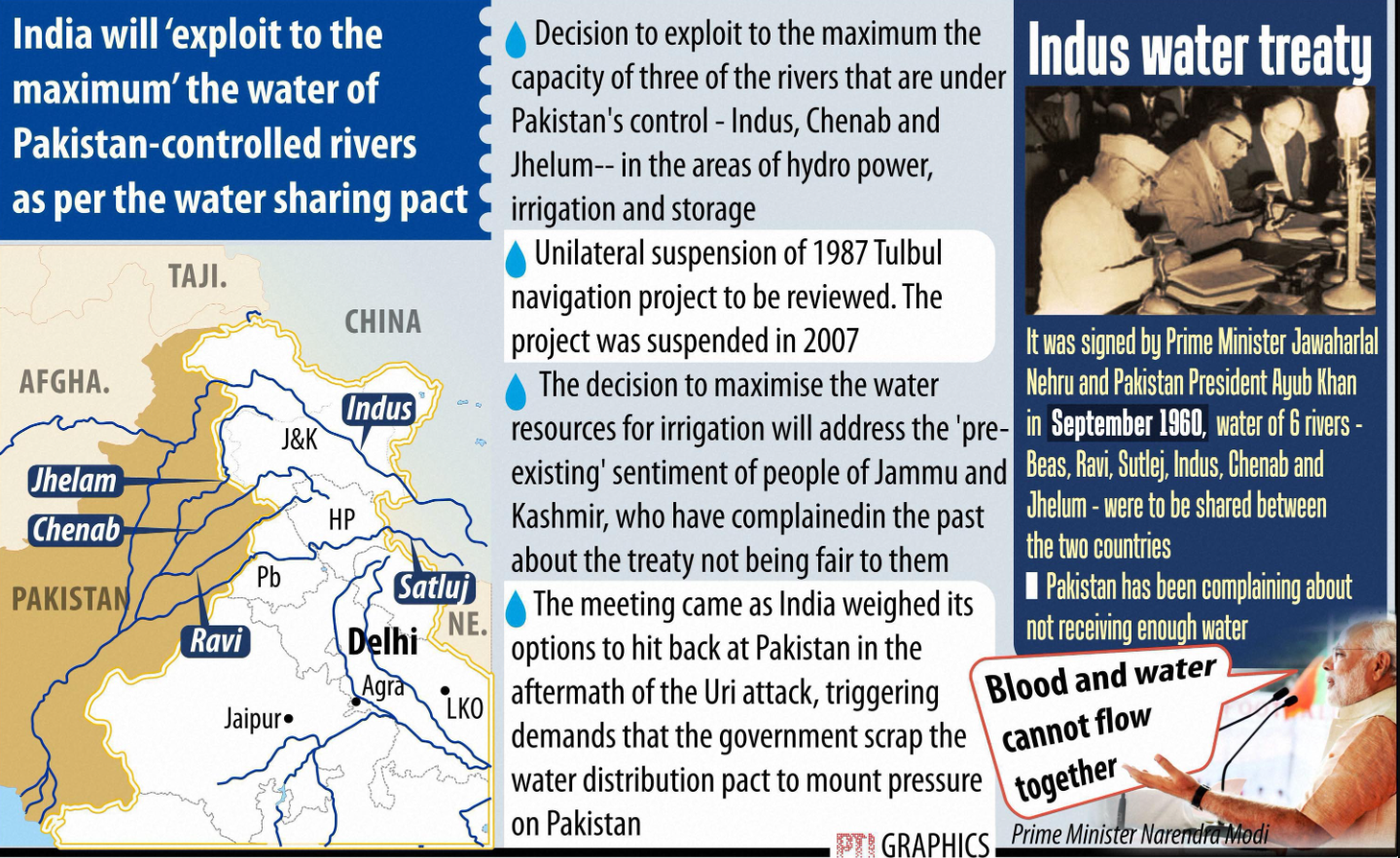Neutral Expert Upholds India’s Stand on Indus Waters Treaty Dispute Over Kishenganga and Ratle Projects
(Source – Indian Express, Section – Express Network- Page No. – 09)
| Topic: GS2 – International Relations |
| Context |
| ● The World Bank-appointed Neutral Expert has upheld India’s stance on the dispute resolution mechanism under the Indus Waters Treaty (IWT) concerning the Kishenganga and Ratle hydroelectric projects. |
Analysis of the news:

What is Indus Water Treaty (IWT)?
- Indus Waters Treaty was signed on September 19, 1960, between India and Pakistan and was brokered by the World Bank.
- The treaty sets out a mechanism for cooperation and information exchange between the two sides on the use of the water of the Indus River and its five tributaries Sutlej, Beas, Ravi, Jhelum, and Chenab.
Neutral Expert’s Decision
- The Neutral Expert validated India’s position that the seven questions referred to him fall under his jurisdiction per Paragraph 7 of Annexure F of the treaty.
- This aligns with India’s consistent claim that only the Neutral Expert has the competence to decide these issues.
- The decision marks the beginning of the merits phase, which will evaluate the specific technical differences and lead to a final decision.
India’s Stand
- India welcomed the Neutral Expert’s decision, emphasizing its commitment to the sanctity of the IWT and rejecting the parallel proceedings initiated by Pakistan in the PCA, which India deems “illegally constituted.”
- The Ministry of External Affairs (MEA) reiterated India’s readiness to cooperate within the Neutral Expert process to resolve differences consistent with treaty provisions.
Pakistan’s Position and Actions
- Pakistan had initially sought the appointment of a Neutral Expert in 2015 but later unilaterally withdrew the request in 2016, opting instead for arbitration through the PCA.
- This shift, according to India, violated the graded dispute resolution mechanism stipulated in Article IX of the IWT.
Broader Context of Disputes
- India is constructing the Kishenganga hydroelectric project on the Kishenganga River (a tributary of Jhelum) and the Ratle hydroelectric project on the Chenab River.
- Pakistan has raised technical objections, citing potential violations of the IWT. In response, India has invoked Article XII (3) to initiate reviews and potential modifications to the treaty, reflecting its evolving water management priorities and the need to address procedural ambiguities.
Conclusion and Implications
- The Neutral Expert’s decision reinforces the treaty’s dispute resolution mechanism and validates India’s adherence to its provisions.
- Moving forward, the merits phase will be critical in resolving technical differences.
- The case highlights the enduring challenges in Indo-Pak relations concerning shared water resources under the IWT framework.
| PYQ: With reference to the Indus river system, of the following four rivers, three of them pour into one of them which joins the Indus directly. Among the following, which one is such a river that joins the Indus direct? (2021)
(a) Chenab (b) Jhelum (c) Ravi (d) Sutlej Ans: (d) |
| Practice Question: Discuss the significance of the Neutral Expert’s decision on the Kishenganga and Ratle hydroelectric projects in the context of the Indus Waters Treaty. How does this decision impact Indo-Pak relations and the broader regional water-sharing framework? (150 Words /10 marks) |
For more such UPSC related Current Affairs, Check Out –Spike in Olive Ridley Turtle Deaths Along Tamil Nadu Coast Sparks Conservation Concerns
